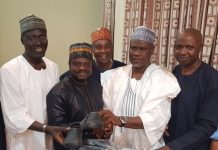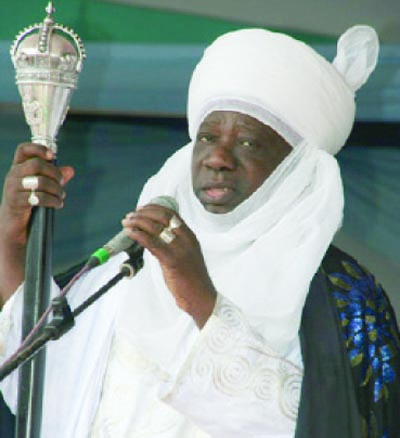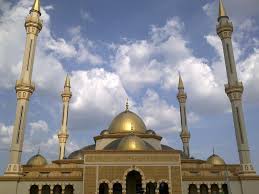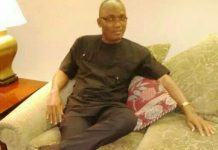I appreciate the invitation extend to me to deliver a paper at the annual Get-Together of the Third-Estate in Ilorin which is in the series of annual activities of the young, dynamic and enterprising indigenes of the Emirate. It is commendable the efforts of members over the past years to contribute their own quota towards the social, economic and political development in the community.
I have noted the contributions of past lecturers at this forum in sharing their professional expertise on various topic of importance to the people. I recall my bosom friends, Alhaji Kola Belgore, Jarman’n – Ilorin, a banker who talked about Banking and financial sector likewise Alhaji Tunde Yusuf’s last lecture on aviation industry considering the fact that Ilorin Airport would soon host one of the best and well-equipped International Aviation School in Africa.
Going by my working experience as an engineer, my topic should have centered on engineering but the fear of technical jargons which may not be understood here and for spending almost four decades of my professional career in the private sector, I am compelled to narrow my topic on Entrepreneurship.
My paper therefore is not going to be an academic piece but a talk to ginger a wake-up call on our community. It is to stimulate our consciousness and challenge us on the need to use our advantage to advance the economic empowerment of the people. Furthermore, it is intended to correct the erroneous impression that our people are lazy folks and hangers on.
As you may be awre Longman Dictionary of Contemporary English defines Entrepreneur as “someone who starts a new business or arranges business deals in order to make money often in a way that involves financial risks.” Encyclopedia Americana defines entrepreneur “as a person who invests money in a business venture – usually a new venture in the hope of making profit by overcoming all along the controls and risks involved”. The popular online Wikipedia defines an entrepreneur as “a person who has possession of a new enterprise, venture or idea, and assumes significant accountability for the inherent risks and the outcome. He or she is an ambitious leader who combines land, labour and capital to often create and market new goods or services.”
It is interesting to note that early settlers of Ilorin who were largely Sudanese, Malian, Hausa, Fulani, Yoruba and others brought their entrepreneurial skills with them to the town. There were other itinerant merchants and travelers who came with other ventures and skills that have been domesticated in the Emirate. Some skills and ingenuities are peculiar to certain tribes, families and individuals or groups. For instance the Fulanis essentially keep livestock, the Nupes are experts in extraction of oil from groundnut and frying it to cake (kulikuli) while the Hausas are essentially into well digging, embroidery and roping. The Yorubas are popularly known for hunting, pottery, mud house building “olomo” and leather works. The general trades by most tribes include farming, commerce and weaving.
Names of some compounds, areas and families in Ilorin are direct reflection of their trade. For instance: Ile Asileke (bead makers), Ile Alagbede (Blacksmith), Ile Olomo (mud layers), Adabata (shoe makers), Ile Alawo, Ile Oni ponmo, Ile Onisona (tanner and leather workers, etc). These are just a miniscule of the vast entrepreneurial activities developed and domesticated here in Ilorin Emirate.
The city is also proud to produce successful Entrepreneurs such as S.K. Dan Alhaji, a successful transporter; the Olumos, great merchants; the Amuda Kanikes, cattle traders; the Toyin Barubas, the Oloriegbes and the Olowo Okeres who were textile traders and the Sagayas who were traders and transporters and later graduated to industries.
Textile trade, became the most popular trade, probably because of the large number of individuals involved in the chain including threads making, weaving, distribution and sale of the finished products, this has being the major trade of the Oke-male area of Ilorin. Other trades that made Ilorin popular are leather tanning in the Alowo area of Okelele. Pottery making, which is a trade that engages most women, other than being a commercial product taken to Lagos, Onitsha, Port-Harcourt and Kano, the pottery factory (Ebu) along Ondoko also in Okelele area was a tourist attraction, though not yet developed to an international level.
The declining productivity and fortunes of these popular trades, weaving, leather work and pottery should be a subject of further study by historians, sociologists and psychologist. But efforts of the Oloriegbes in partnership with others to establish Prospect Textile Mill to produce thread, the main raw material for the textile weaving is not commensurate with the zeal to improve the usage in the form of improved loom structures. There are many more raw materials but the usages do not increase proportionally to make the industry a success. Needless to remind us that Ebo Alaso textile mill located at Oke Ebo in Pakata Area would have been a foremost textile industry in the country today.
From the above, it is obvious that Ilorin has had a rich history of entrepreneurship skills. All have been lost due to so many factors. Some of the factors include influence of Western Education. With gratitude to Almighty Allah, to some extent Ilorin is no more lagging behind in the quest for western education. With many of its indigenes now well educated, there seems to be a paradigm shift from improving the entrepreneurship history of the town but rather we focus on seeking for plum jobs in Government and other organizations.
Another factor is modern day Politics which has turned most of our erstwhile hard working weavers, successful traders etc into political canvassers, job seekers and emergency contractors. Someone who cannot read or write has suddenly turned into a building and road contractor. The educated ones have turned themselves into boot lickers desperately looking for political appointments.
There are indeed unlimited opportunities abound in the ancient city. Ilorin is a land of unlimited opportunities where many non-indigenes have excelled due to their entrepreneurial skills. A lot of brilliant lawyers in this category have made their marks in the law business starting their practice here in Ilorin. Some have conquered the State in the area of Industry. Similarly, the Ibos’ have settled and excelled in their entrepreneurial skills in commerce and now control the economy of the State in the wholesale and retail marketing of industrial goods. Even some religious sects are engaged in entrepreneurial campaign for their followers. Yes, because of our vast knowledge of the Quran and Islamic scholarship, a tradition of Ilorin Emirate, our Mallams too could have equally capitalized on this to develop the town. It gladdens my heart that the few of us that have taken the risk to venture into business despite our education, have not regret for going into risky terrain. Alhamdullillahi.
A few of our women too, have been successful entrepreneurs in the area of commerce, the likes of Alhaja Abebi Akosile, the Iyalaje of Ilorin, Alhaja Belawu Olumo, and most recently Alhaja Muinat Sagaya (not Shagaya) who is making waves across the nation. And of course, there are a lot of our women out there who are doing extremely well in the area of commerce in Oja Tuntun. What about our men?
Therefore, why and why not, can we not even use our God given and historical talents combined with our educational advantage to improve on what we met on ground? There can only be one Chief Justice of Nigeria, one President Court of Appeal and one President of Federal High Court amongst lawyers, and happily we have already had one of each from Ilorin Emirate; there can only be one Permanent Secretary in the Ministry of Works or one Chief Medical Director in the Teaching Hospital. Therefore, can’t our lawyers look more into private practice, rather than everyone wanting to be a judge? Similarly, our Engineers, can go out and make their own impact in the private sector rather than going to queue in the ministry. While others in humanities and other areas of specialization could explore the historical antecedent and turn the town around from the sleepy and painfully pathetic state we are now.
This treatise was not intended to bog you down nor bore you. Rather, it is to remind us that majority of our people are struggling to survive the hard economic situations in the country.
We should think and work as individuals and as groups on how to proffer solutions to myriad of problem bedeviling our people and to revitalize our entrepreneurship activities in order to create employment opportunities for our people to disentangle them from the shackles of poverty and deprivation.
*This an excerpt from an address by Engr. Sagaya (MFR), Zanna of Ilorin on Entrepreneurship during the Annual Dinner of Third Estate, held in Ilorin, Kwara on Sallah Day.













